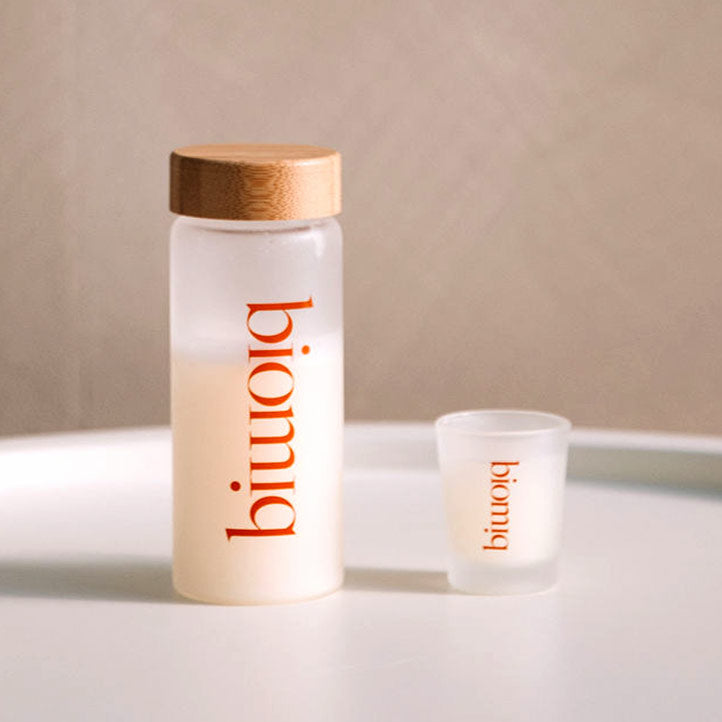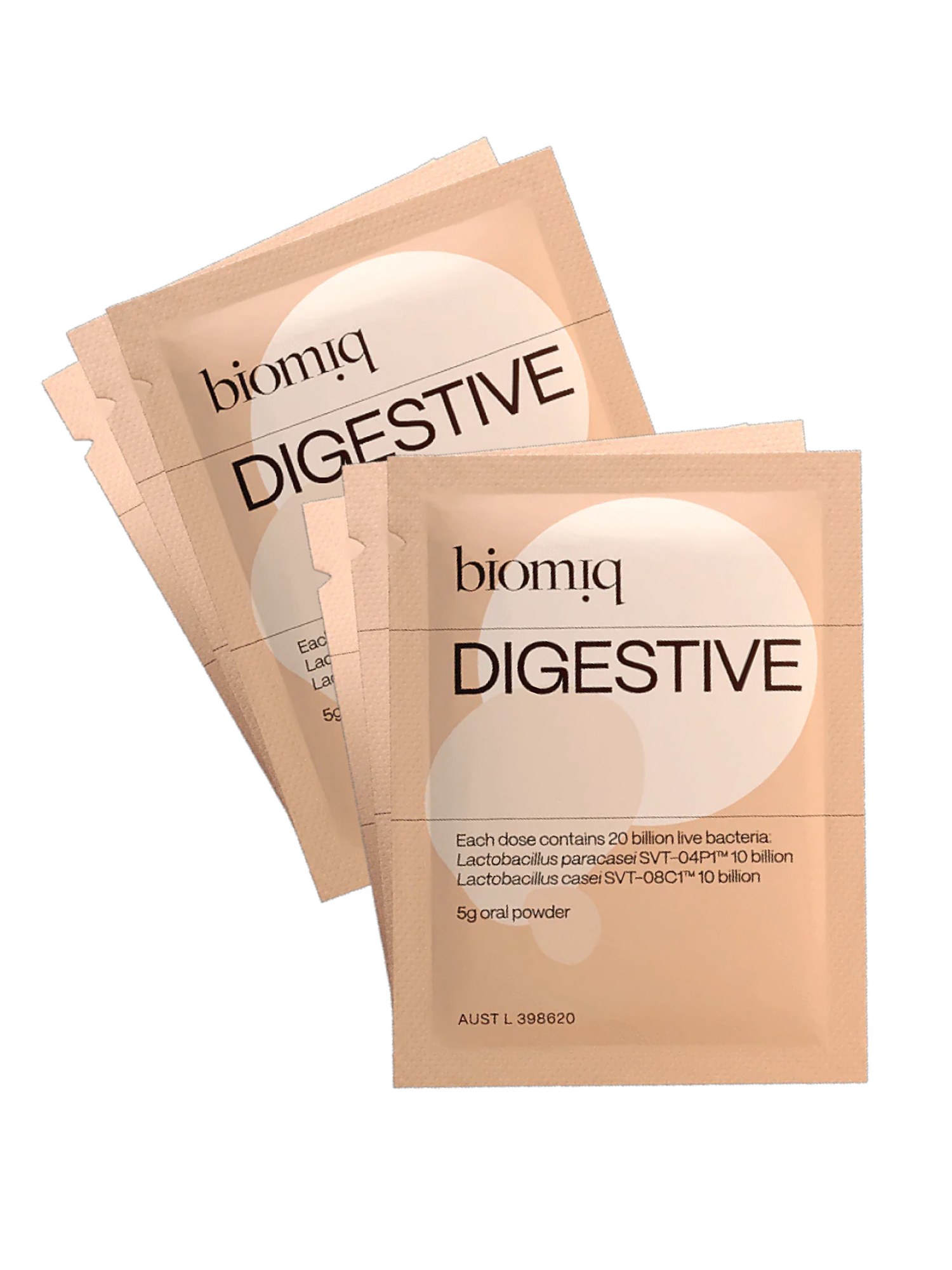Under normal conditions, we coexist happily with our microbes.
Our microbes regulate our digestive and immune systems, protect against germs, break down food to release energy, produce vitamins, and even influence behaviour and emotional well-being through hormone regulation. However, this balance can be disrupted by several factors:
- Diets lacking in nutrients and fiber;
- Lack of exercise;
- Poor sleep;
- Increased stress or anxiety;
- Use of certain medications or antibiotics;
- Prolonged periods spent indoors;
- Infections from pathogenic microbes;
- Genetic factors (e.g., hereditary conditions);
- Overexposure to disruptive products such as cleaning products, agricultural chemicals, and/or cosmetic products.

This imbalance is known as 'microbiome dysbiosis'. When this occurs, beneficial bacteria that keep you healthy may die off and be replaced by less beneficial or even harmful bacteria.
Research shows that people experiencing dysbiosis often have a decrease in health-promoting bacteria (such as Lactobacillus and Bifidobacterium) and an increase in disease-promoting bacteria (such as Enterococcus and certain Clostridium). Consequently, the microbiome shifts from an optimal, highly functional community to a less optimal or harmful one.
Microbiome dysbiosis can negatively impact a person's health and well-being. Some may experience mild symptoms, while others may suffer from severe conditions or multiple symptoms.
The microbiome is crucial for health and well-being, often considered a supporting organ due to its significant role in daily bodily functions. Understanding how your microbiome influences various aspects of your health can better equip you to manage your well-being.
Things you can do to help your microbiome stay healthy include:
- Eat a varied and balanced diet;
- Get adequate sleep;
- Manage stress levels;
- Spend more time in nature/outdoors;
- Minimize overuse of unnecessary medication or cleaning products;
- Try a probiotic product.

Using powerful, biologically active probiotics, such as biomiq's advanced probiotic range, helps to support your guy microbiome health and assists with regulation of digestive and/or immune health.
Read our other blogs
-

What does your microbiome do for you?
Read ArticleIt is in your microbiome's best interest to look after you, as you are home to these trillions of tiny microbes!
-

Bacteria are the foundation of all life on earth - including you!
Read ArticleEvery object and every living being on this planet, has its own microbiome. You have one, your pet has one, your house plants, your kitchen bench top, your phone screen… Everything has a community of microbes & bacteria living on it.
-

But aren't microbes bad? they make you sick - don't they?
Read ArticleNow scientists and doctors know better and have better technology, which enables them to study the the bacteria that help us to stay healthy. What they have found is that most bacteria do not cause disease when there is just the right amount of them.








